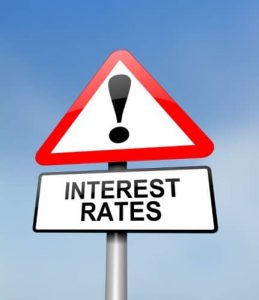Get an as-is cash offer for your home
"*" indicates required fields
You found the perfect home, but interest rates are so high, you can’t afford the payments. What can you do to get a better interest rate? Understanding how your lender receives payment, can result in saving thousands of dollars on your loan. This article outlines the payment process for your lender and provides guidance on securing the best interest rate for your loan.
How your lender makes their money
Most loan companies make their money by marketing or brokering loans. After the lender issues a loan, they sell the loans to entities in the secondary market, such as larger banks or Wall Street institutions.. These banks and institutions then sell your loan to other banks and institutions. Over the next two to three months, it’s not uncommon to see a loan sold 3 or 4 times to different institutions.
The loan brokers who originally create the loan for you, will typically have a selection of products to choose from that they know they can sell easily on the secondary market. However, they will usually keep it simple and only tell you about one product. Loan originators, also known as brokers, earn their payment by charging borrowers an origination fee. These fees are typically referred to as “front end points”. A point is just a financial term that means a percentage – one point equals one percent and is typically a percentage of the total loan amount. Front end simply means you will pay the fee directly to your loan broker.
Wall Street wants your loan
The secondary market is very competitive and has their own loan packages they want your loan broker to sell. To encourage your loan broker to do this, these lenders may offer your loan broker money to do this. Secondary market lenders incentivize lenders to sell their loans by offering a “back end fee” or a “Yield Percentage Spread.” They may offer to pay your broker a point for him to sell you their loan instead of another loan. For your broker, selling a few of these loans each month can be a big payday.
You might ask, “If I don’t have to pay the ‘back end fee’, why does it matter”? That’s a great question.
A real world example
Let’s say you want to borrow $100,000 and your lender tells you that the interest rate for a loan from Bank A is 4.5% and a one point origination fee. This means that you will pay $4,500 a year in interest on this loan. To receive payment, your lender will impose a one-time origination fee of one point or $1,000 on top of your loan. You will pay $4,500 in interest and $1,000 in points the first year of your loan. However, you will not have to pay any more origination fees, unless you ask them to add the origination costs into your loan.
But, let’s imagine your broker needs to make more money this month because he needs a bigger, better bass boat. He knows that Bank B will pay him an additional 1% commission (back end fee) if he sells Bank B’s loan to you. However Bank B’s loan’s interest rate is 4.75%, or $4,750 in interest a year. Now, instead of only being paid $1,000 in origination fees, your broker gets an additional $1,000 if they sell you Bank B’s loan rather than Bank A’s loan.
Over the course of ten years the difference in the interest you pay adds up to $2,500. It’s even more significant when your home loan is several hundred thousand dollars. When this is happening, it’s difficult to tell which lender is giving you the best deal.
How to shop for the best interest rate on your home loan
Don’t just go with the lender your real estate agent sends you to. Instead, shop around. Ask prospective lenders what their “par rate” is. This is the interest rate before any back end fees get added to your final interest rate. Consider asking, “If I ensure that you receive your fee, will you show me all available loans and allow me to choose the one I prefer?”. Also be sure to ask what the back end points are for each loan they present you with. This way, you can choose which loan package works best for you. Even if it’s not one that pays your broker the most. Keep in mind that you may need to cover the cost difference to compensate the broker.
Shopping for a loan and knowing how your lender will get paid could save you a lot of money. Take the time to do your homework and ask lots of questions before making your decision.

